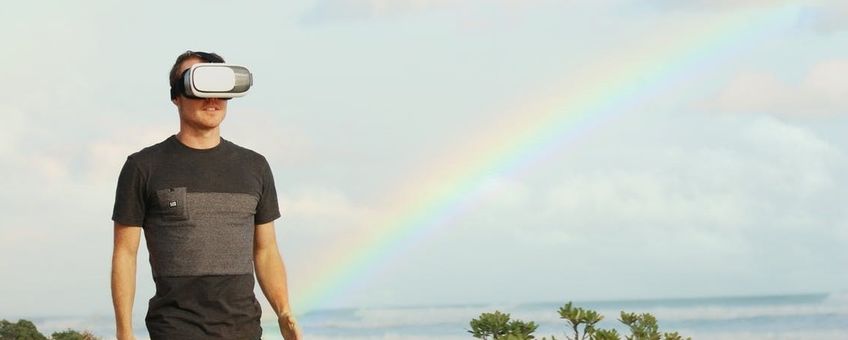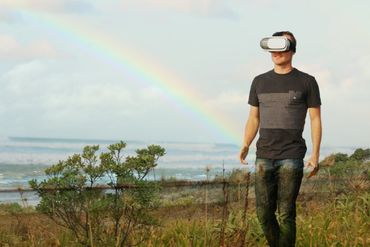
Nature experience 2.0: the potential of digital nature experiences
Wageningen University & ResearchTransformation of experience
Nowadays, people are spending less time outdoors due to the rise of digital technologies, social media and urbanization. As a result, direct contact with nature becomes rarer and this affects the relation between people and nature. Many conservationists fear that the loss of direct nature experiences will lead to an ’extinction of experience’ and argue that this has negative consequences for people's sense of being connected to nature, and nature conservation in general. However, recent digital and technological developments seem to open up a whole new range of nature experiences. Nowadays, besides direct nature experiences, people can also experience nature in indirect ways through various digital technologies. This implies a ’transformation of experience’, with digital technologies potentially playing an important role in (re)connecting people with nature. Recently attention for the possible influence that digital technologies can have on the relation between people and nature has started to develop. However, more detailed insight in the sort of (new) nature experiences that arise and the possible impact that these could have on the relation between people and nature is still largely absent. That is why Wageningen University is currently exploring this field. Recent student research has provided some new and interesting insights in the potential of digital nature experiences.
A first step within the (student) research project was to identify various digital technologies through which nature can be experienced (see table below). A distinction was made between digital technologies with different purposes in mind, including purposes relating to enjoyment and excitement, information and education, awareness raising, socialization and health and well-being. Currently, most digital technologies still seem to focus mainly on inducing feelings of enjoyment and excitement for its users. However, digital technologies with other purposes are increasingly appearing and these seem to have a lot of potential for enriching the relation between people and nature.*
As a second step within the project, a case-study was carried out within the Omniversum (a dome screen movie theatre displaying nature documentaries in The Hague). Visitors were asked about their (feeling of) nature connectedness before and after viewing the documentary. The results showed that the more realistic the digital nature experience, the stronger the effect on one’s nature connectedness. This is a promising perspective as the field of digital technology is evolving rapidly and digital (nature) experiences such as virtual reality and multidimensional movies, are increasingly able to simulate real nature experiences.

 The outcomes of this research show that the distinction between real and digital nature experiences is to some extent fading. New and realistic digital nature experiences seem to offer the potential of fostering feelings of nature connectedness. Even though this type of nature experience often does not involve direct contact with nature, it can still positively influence people’s relation with nature. Despite the promising potential of this new range of nature experiences that stems from this research, it is important to remain critical about this topic. That being said, it is important to remain critical about these developments. The potential of new digital nature experiences is not to suggest that these can fully replace real nature experiences. As new digital nature experiences become easily accessible and ubiquitous this might also imply a potential risk in that they could lead to a situation where ‘traditional’ nature experiences become scarce. From the viewpoint of nature connectedness, ideally new digital experiences will complement and enrich existing experiences. If and how this can be achieved requires further research.
The outcomes of this research show that the distinction between real and digital nature experiences is to some extent fading. New and realistic digital nature experiences seem to offer the potential of fostering feelings of nature connectedness. Even though this type of nature experience often does not involve direct contact with nature, it can still positively influence people’s relation with nature. Despite the promising potential of this new range of nature experiences that stems from this research, it is important to remain critical about this topic. That being said, it is important to remain critical about these developments. The potential of new digital nature experiences is not to suggest that these can fully replace real nature experiences. As new digital nature experiences become easily accessible and ubiquitous this might also imply a potential risk in that they could lead to a situation where ‘traditional’ nature experiences become scarce. From the viewpoint of nature connectedness, ideally new digital experiences will complement and enrich existing experiences. If and how this can be achieved requires further research.
More information
The original report can be found here (pdf: 1,1 MB).
Text: Dagmar Bade, Anne Bus and Bas Breman, Wageningen University and Research
Figures: Wageningen University and Research
